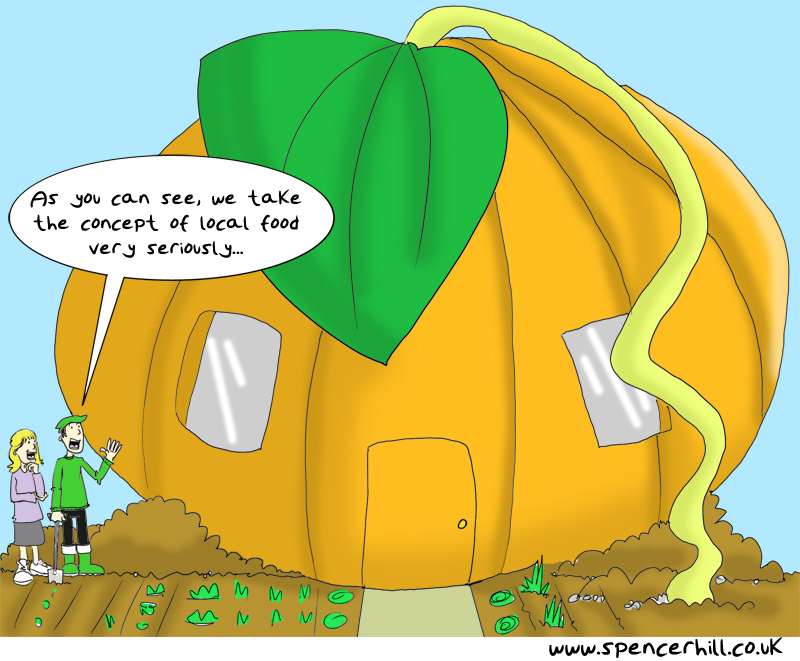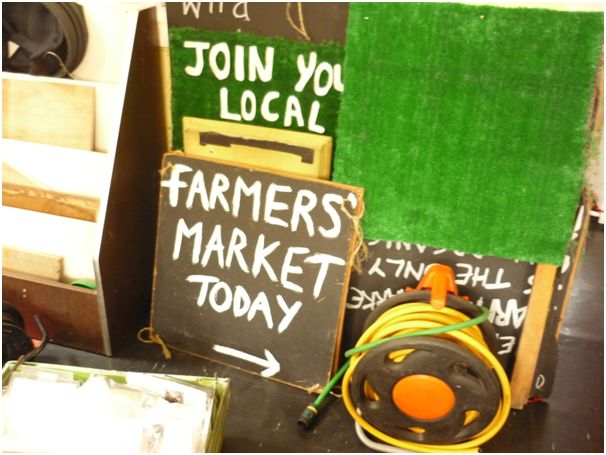There are no answers in this post, only questions. I have started the fieldwork and interviews for my PhD looking at food sovereignty in New Zealand and one of the main ideals that has come across so far is that of localisation. I, personally, am a fan of eating locally produced food - seasonal vegetables, milk from a near-by farm, sourdough bread baked down the road in an old-fashioned brick wood-fired oven, etc. But how local is local? The baker certainly doesn't grow his own wheat, it's not grown around here. Hardly any grains are grown in New Zealand. Maybe localisation means that we start growing all the grains, seeds and pulses that are possible to grow in this climate and only import the essential things we can't grow (coffee and chocolate).
I am as likely as anyone to idealise simpler ways of doing things: growing and making your own food; buying or trading locally for other homemade goodies; avoiding highly processed foods with a plethora of unrecognisable ingredients; driving less and walking more; making your own skin and hair care products or living without them... This all seems to make a lot of sense. With food, particularly, we have developed and altered it so much that our bodies are having a hard time keeping up. Critics argue that localisation is just another middle class fantasy that isn't practical for most of the world, although Via Campesina, the international peasant movement, assert that it is an important part of food sovereignty in the Global South. I am interested in how these different worlds with similar ideals can meet.
I also wonder what this philosophy means in terms of technology. I have grown up with computers and been attached to the internet and cell phones since I was a teenager. The internet has done amazing things; networking, sharing and communication have advanced social justice causes and exposed real conspiracies as well as facilitated the dissemination of a whole lot of cat memes, propaganda and made up conspiracies. I'm not ready to live without any of these things, except maybe the last two.
When people talk about localisation often there is an underlying acknowledgement of peak oil or 'when the economy inevitably collapses'. There is this projection of a different world, a less disposable world where resources and the environment are more valued, where we can no longer afford to waste, where we grow roof-top gardens in the cities and permaculture-up the public spaces. There is no implicit rejection of all modern technology but there is the obvious possibility of it's loss. Is it possible to envision a world where we can produce our own food but still have the internet - one of the largest power-suckers in the world?
The argument for progress at all costs is old and out-dated; the idea that technology will surely save us seems like it comes from a strange religious cult, but can we walk comfortably backwards while still advancing our collective thoughts, our social justice practices and our communication?





welcome to NZFBA, we have added you to the members page! https://sites.google.com/a/foodbloggersnz.com/nz-food-bloggers-association/members
ReplyDeleteHi Isa
ReplyDeleteI was thinking about your post yesterday, about the way in which isolated people would benefit from food autonomy most because of the costs of transport, but sometimes can access it least. The West Coast is not an easy place to grow food at a commerical level. At a more serious level, parts of Polynesia are dependent on expensive imports but really need local food autonomy (that is my understanding, but I could have that wrong).
But I've just read this Guardian article and it seemed far more important: http://www.guardian.co.uk/commentisfree/2013/mar/27/food-class-poor-people-stamps
Hi Sandra. If you're interested in food poverty in NZ I recommend Kellie McNeil's PhD looking at foodlessness in Hamilton: http://researchcommons.waikato.ac.nz/bitstream/handle/10289/5458/thesis.pdf?sequence=3
ReplyDeleteShe is one of my Supervisors.
The ability to grow food locally is a concern if your climate is not suitable for long stretches of the year. I also wonder how much of 'localisation' comes from the idealisation of tradition that is so very common.